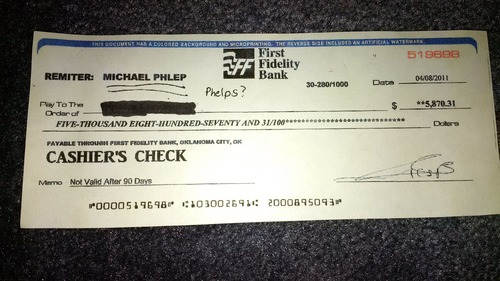
Employee theft costs businesses an estimated hundreds of billions of dollars each year and a report from The Hanover Insurance Group, Inc. has some insights on the four most common crime schemes impacting business owners and recommendations on how to prevent them from occurring.
“Business owners spend a significant amount of time and resources protecting their business from a variety of risks, whether it’s liability for their products or services or severe weather,” said Helen R. Savaiano, president of management liability at The Hanover. “But, what can sometimes be overlooked are the risks presented by unscrupulous employees and unfortunately, those types of losses happen more often than business owners think.”
Managing employee theft starts with the employers themselves. They have to make theft as difficult as possible for employees and develop strategies to prevent it from occurring in the first place. Implementing a preliminary analysis of the company and its procedures is the first step. Questions that can help identify problems include:
- Company merchandise – Is it desirable to steal? Is it easy to steal?
- What kinds of financial controls are in place regarding petty cash, bank deposits/withdrawals, paying invoices?
- Can shipping & receiving documents or invoices be altered?
- Can employees enter and leave the facility without being seen?
A report from The Hanover identifies four measures for controlling employee theft:
- Pre-employment screening – Hiring honest employees is a good place to start and this can be accomplished through a thorough pre-screening process: reference checks, background checks and criminal checks can provide valuable information.
- Procedural controls and devices – Written procedures addressing security protocols, company policies and what happens when they are violated by employees should be clear and concise. Workflows should be organized so that employees can act as checks on each other and a process for reporting anomalies should be established.
- Improving job satisfaction – Since several of the frequent causes of theft are attributed to low job satisfaction, regular communication with employees, training programs, salary reviews and recognition by management are important strategies for employers.
- Apprehending and prosecuting offenders – Sometimes the fear of being caught and prosecuted can be an effective deterrent, although less than 1% of employee thieves are prosecuted. If employers don’t want to go through the expense of filing charges, requiring employees to make restitution is another option.
Here’s a look at the four most prevalent frauds perpetrated by company employees and some recommendations to prevent them from occurring in your organization.

1. Expense Reimbursement
Employees may submit additional expenses that either never occurred or are not related to a specific business event. Employers should require receipts for reimbursable expenses and question those that seem unusual or not related to a specific trip or project. Having an immediate supervisor review expense reports before they are submitted for payment can also help identify questionable expenditures.

2. Check Tampering
Employees can use company checks to pay themselves when they run checks or reissue older uncashed checks in their own name and cash them. Having someone else (either the owner or another individual in the accounting department) review the checks before they are signed and signing the checks provides a review system that makes it harder for employees to tamper with checks.

3. Payroll Schemes
This involves either changing the amount on the employee’s payroll check or creating duplicates of their check so it can be cashed more than once. Another manager or the owner should review the checks before they are issued to look for duplications.

4. False Billing and Vendor Invoices
Heather worked for a small company. She managed the payroll and accounts payable. She also had a $5,000 a month drug habit. To cover her habit she created dummy invoices that had to be paid each month. Her boss didn’t catch on to the dummy invoice scheme until she had bilked the company out of tens of thousands of dollars. She was successfully prosecuted and is making restitution after serving time in jail.
Don’t make it easy for employees to set up false vendor accounts and then bill the company for non-existent inventory or services. Review the invoices and tie them to specific goods or services for the company. Encourage employees in the accounting department to take vacation time and turn their responsibilities over to another staff person. If your accountant doesn’t want to leave her desk for some R&R because no one else “can do what I do,” that should be a red flag.
What are some other steps employers can take?
Here are some recommendations from The Hartford on ways to reduce the chances of worker fraud in an organization.
- Conduct background checks for all employees.
- Have clear accountability for every position in the organization. Set up a system of checks and balances.
- Have a company tip line and guarantee anonymity for workers reporting suspicious business practices.
- Communicate frequently the company’s employee code of conduct.
- Conduct thorough investigations on any discrepancies.
- Purchase crime and fidelity coverage.
Contact PRIME to assure you are insured in the event of a Crime incident. Simply submit a comment below, or via:
Phone: 732-886-5751
Email: PRIME [at] primeins [dot] com


Discussion
There are no comments yet.